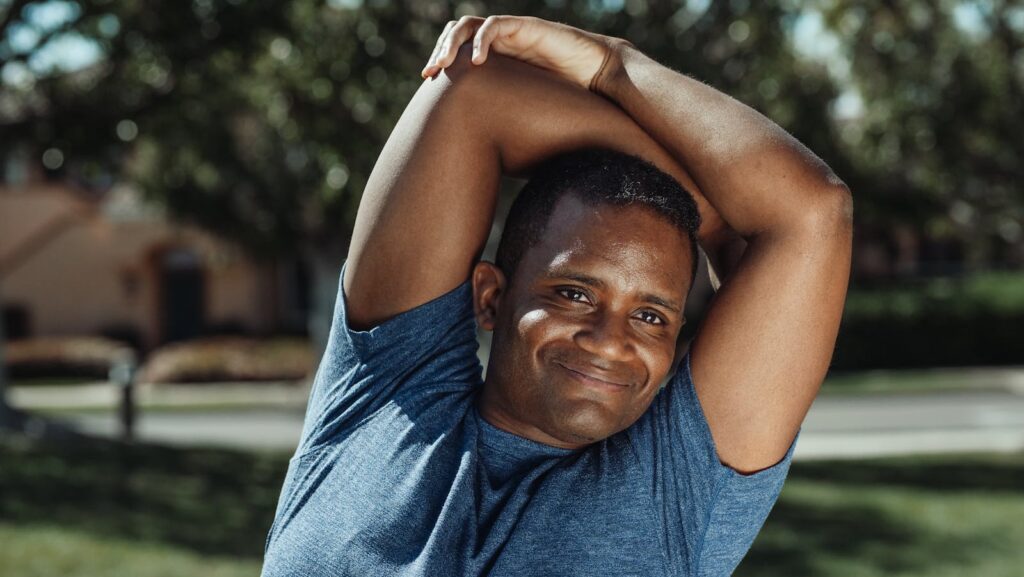Mental health problems like anxiety and sadness are on the rise in today’s hectic society. A lot of people are looking for ways to control these illnesses, and exercise is a great strategy. Extensive research has demonstrated that engaging in physical activity can significantly reduce feelings of depression and anxiety. In this piece, we’ll talk about how exercising can greatly benefit your emotional and psychological wellness.
A Comprehensive Guide to Depression and Anxiety:
Anxiety and depression must be understood before the exercise advantages can be discussed. Excessive concern, fear, and apprehension are symptoms of anxiety disorders, while persistent sadness, hopelessness, and lack of interest in daily activities are symptoms of depression. Both illnesses have the potential to greatly hinder a person’s ability to go about their everyday lives normally.

The Link Between Physical Activity and the Endorphins It Releases for Mental Health:
- Endorphins:
commonly called “feel-good” hormones, are released into the bloodstream during exercise, which is one of the main mechanisms by which exercise helps fight anxiety and melancholy. Your body releases these hormones when you exercise, which can improve your mood and make you feel good.
- Stress Reduction
Working out is an excellent way to reduce stress. Adrenaline and cortisol are stress hormones that your body releases in response to physical exertion. The body is able to better regulate these stress chemicals when you exercise regularly, which may sound paradoxical. Anxiety and depression symptoms may improve as a result of the cumulative effect of lower stress levels.
- Elevated Quality of Sleep
Disruptions to sleep are common among depressed and anxious people. Exercising regularly can help you get a better night’s sleep by making you feel tired throughout the day. An increase in the duration of deep sleep—crucial for restorative and rejuvenating processes—is a side effect of physical exercise. Anxiety and despair can be greatly alleviated with better sleep.
- Lifting One’s Confidence and Self-Respect
Exercising regularly can boost confidence and self-esteem by improving one’s physical attractiveness, strength, and fitness levels. Anxiety and depression are characterized by feelings of isolation; yet, when people have a positive self-image, they are more inclined to seek out social activities and hobbies.
- Keeping Negative Thoughts at Bay
A good way to combat the negative thinking patterns that frequently accompany mental health issues like melancholy and anxiety is to get some exercise. Exercising helps people forget about their problems for a while and concentrate on the here and now. People with mental health difficulties may benefit greatly from the mindfulness component of exercise.
- Support and Interaction with Others
One way to meet new people and strengthen existing relationships is to join a group fitness class, play a sport on a team, or perform an outdoor activity. People suffering from anxiety and depression often experience feelings of loneliness and isolation; fostering a sense of community and making connections with others can help reduce these symptoms.
Types of Aerobic Exercise to Think About
When it comes to improving mood and decreasing anxiety, aerobic workouts like jogging, cycling, swimming, or dancing are tops. For your mental health, try to get at least 150 minutes of aerobic activity per week at a moderate level.
- Training for Strength:
Strength training is another useful component to include in your program. Getting in shape by lifting weights or utilizing resistance bands has multiple benefits, including boosting confidence and self-esteem.
- A Practice in Mindfulness and Yoga
Yoga is a great option for those looking to alleviate anxiety and depression because it incorporates physical activity with mindfulness and breath control. Maintaining a regular yoga practice can do wonders for your mental health and ability to unwind.
- Strolling or Trekking
If you’re looking for a way to get some exercise without putting too much strain on your joints, try walking or trekking. Another way to improve mood and lessen anxiety is to spend time outside and in nature.
Integrating Physical Activity into Your Daily Life
You shouldn’t let the prospect of exercising on a daily basis deter you. To kick things off, here are some pointers:

- Make Your Objectives Realistic: Start with manageable objectives. Begin with ten to fifteen minutes of exercise each day and work your way up to longer sessions.
- Do Things You Love: Pick out physical activities that you can’t wait to do. Doing this will make it less of a struggle to stay motivated and on track with your regimen.
- Plan Out Your Timetable: Incorporate regular exercise into your weekly agenda. You owe it to yourself to honor these appointments no matter what.
- Keep Yourself Responsible: If you’re having trouble staying inspired and accountable, think about signing up for a fitness class or teaming up with a friend.
Sleeping Quick Fix has more tools and resources to help you on your path to mental wellness. Improve your emotional and mental health with the help of our many alternatives, which include sleep aids and relaxation techniques.
In summary
Anxiety and depression can be effectively managed with regular exercise. You may do wonders for your emotional and physical health by making exercise a regular part of your routine. The most important thing is to discover something you love doing and include it into your routine, whether it’s cardiovascular activity, weight training, yoga, or even just going for a stroll. Check out what Sleeping Quick Fix has to offer for additional materials and support as you go. It is always worthwhile to work on improving your mental health since it is important.
